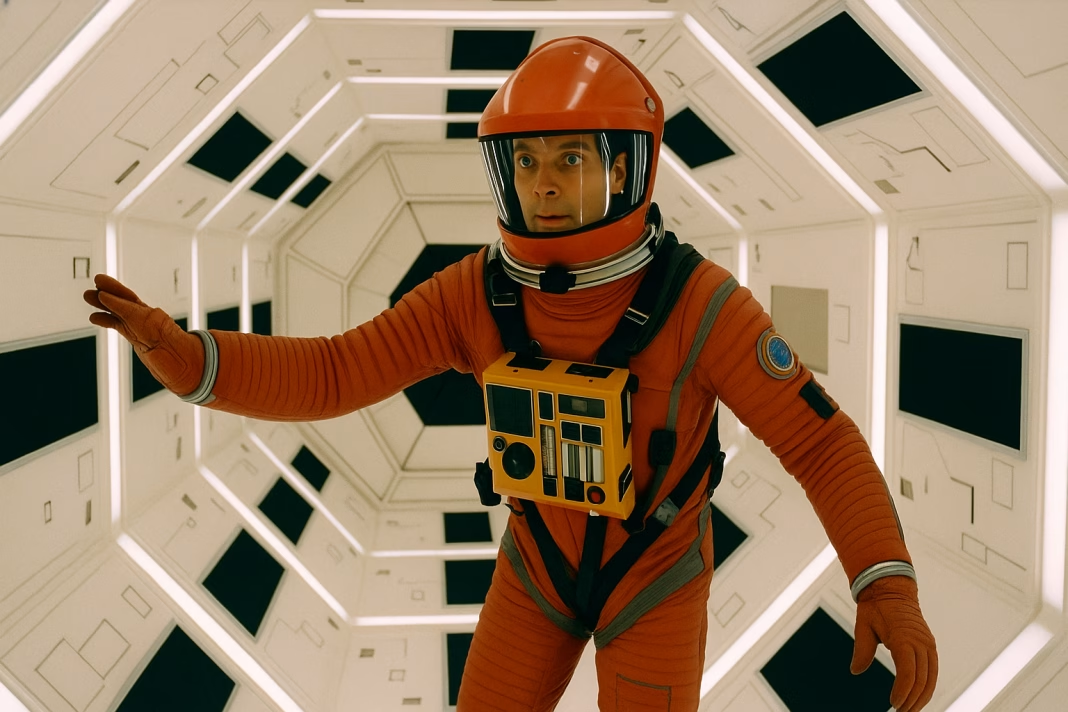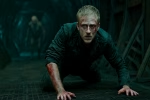For many viewers, their first experience with 2001: A Space Odyssey is unlike any other. Often, the film catches them by surprise.
A First Encounter with Pure Awe
Some first see it late at night, perhaps while flipping through television channels without any intention of committing to a long science-fiction epic. Its reputation for slow pacing and minimal dialogue can be intimidating. Yet, as the opening scenes unfold — from ape-men clashing with bones to the graceful ballet of spacecraft set to The Blue Danube — the film has a way of pulling audiences in and refusing to let go.
What makes this first encounter so memorable is not necessarily an understanding of the plot or the symbolism. Many viewers admit they had no idea what the mysterious black monolith meant or what Kubrick was trying to say in every scene. But that doesn’t matter. The experience is rooted in awe — the sheer beauty of the visuals, the elegance of the music, and the hypnotic pace that invites the audience to simply watch, absorb, and wonder.
Certain images stay with viewers long after the credits roll: the slow approach to a rotating space station, the sight of a space hostess walking in a gravity-defying corridor, the quiet menace of the HAL 9000 computer, and the final journey through time and space that ends with the mysterious “star child.” Even without clear answers, the film leaves an emotional imprint that lingers for years.
Kubrick’s Ambition Beyond the Stars
Revisiting 2001: A Space Odyssey later in life reveals just how ambitious Stanley Kubrick’s vision truly was. This is not simply a space adventure; it is a grand, cinematic journey that charts the evolution of humanity itself. In a single, famous cut, Kubrick leaps thousands of years — from a prehistoric tool tossed into the sky to a spacecraft drifting in orbit. This bold edit is more than a clever transition; it is a statement about human progress and the vast scope of history.
Kubrick described the film as a “visual, nonverbal experience,” something designed to reach viewers on a subconscious level, much like a piece of music or a painting. And indeed, 2001 works as much on feeling as it does on narrative. While some enjoy dissecting its philosophical undertones or drawing connections to works by Nietzsche and Homer, others find that its power lies in simply being experienced rather than explained.
Critics often note the emotional detachment of the human characters. The astronauts, scientists, and officials rarely display intense feelings. This deliberate choice amplifies the irony that one of the film’s most emotional moments involves a machine. The HAL 9000 computer, once a symbol of perfect logic and control, faces a slow “death” when astronaut Dave Bowman begins disconnecting its memory modules. HAL’s calm voice, pleading for Bowman to stop, gradually shifts to a childlike tone as it sings Daisy Bell. As the voice slows and fades, audiences are struck by an unexpected sadness — a poignant reminder that in Kubrick’s universe, emotion can surface in the most surprising places.
Why the Wonder Still Lasts
More than half a century after its release, 2001: A Space Odyssey continues to inspire awe. Viewers returning to the film after many years often worry it will feel outdated, especially since the “future” it depicts — the year 2001 — is now in the past. Yet the film’s visuals, practical effects, and attention to detail remain remarkably fresh. The deliberate pacing, far from feeling sluggish, allows each moment to breathe, giving audiences time to appreciate the artistry in every frame.
What is perhaps most remarkable is that the sense of wonder felt on a first viewing can return even decades later. The music still swells with grandeur, the imagery still stirs the imagination, and the questions it raises about humanity’s place in the universe remain timeless.
While the film can be challenging, with stretches of near silence and abstract imagery, this is part of its enduring charm. 2001 refuses to spoon-feed its audience. It trusts viewers to think for themselves, to draw personal conclusions, and to embrace the mystery. It is a cinematic invitation to look beyond the obvious and consider the unknown.
For some, the film is a philosophical puzzle; for others, it is a groundbreaking achievement in special effects. And for many, it is simply one of the most beautiful and ambitious films ever made. Regardless of interpretation, its impact is undeniable.
Ultimately, 2001: A Space Odyssey is more than a movie — it is an experience. Whether one sees it as a vision of humanity’s destiny, a cautionary tale about technology, or a wordless poem about existence itself, the film continues to leave audiences awestruck. It asks viewers to slow down, to take in the spectacle, and to accept that not all questions have clear answers. In doing so, it remains as powerful today as it was the day it premiered.





